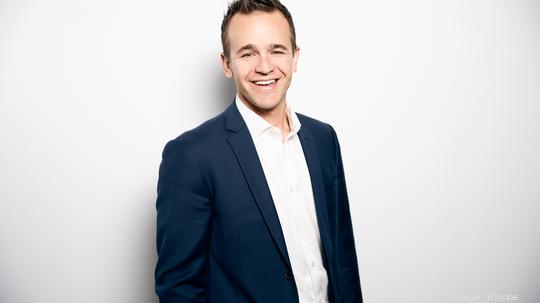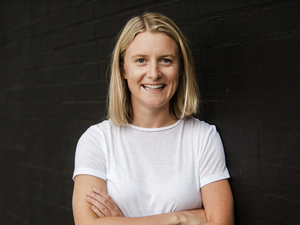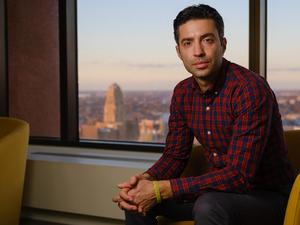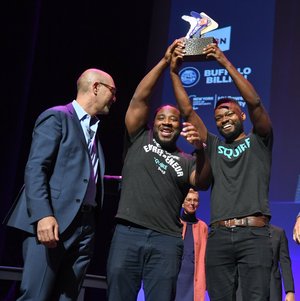
Bitwise officially announced today that it would bring its unique model to Buffalo, more than a year after it began seriously considering an expansion here.
The project is backed by major local players in business and philanthropy who banded together to convince Bitwise’s operation to come here and, ultimately, invested in it.
Those groups see it as more than just another tech company moving to town: Bitwise is the linchpin in an effort to tie the region’s emergent tech scene with the plight of its many underprivileged communities.
They say it’s an opportunity to chart a different course from most tech hubs, which are almost universally plagued by a lack of racial and gender diversity.
“We are trying to bring technology opportunities to a part of our community that has serious obstacles and barriers in taking advantage of them,” said Eric Reich, chair of the Western New York Regional Economic Development Council, who championed the project with several other partners. “Bitwise as an organization knows how to lower those barriers and connect with those people in a meaningful way.”
Backed by more than $100 million in venture capital funding, Bitwise trains tech workers in underserved communities, runs a software development business and leases space to other companies that want to be near it.
Bitwise will likely move into temporary space in Buffalo in the coming months to host its classes, which are returning to in-person for the first time since the onset of the pandemic. Company co-CEO Jake Soberal said he hopes to find a permanent building later this year, which would kickstart a one- to two-year renovation.
If all goes according to a plan, it will be a place to bind Buffalo’s poorest residents to its biggest private-sector opportunity: a tech hub that offers big-city amenities with small-city access.

“What makes Bitwise different is that we train, almost exclusively, individuals coming from stories of systemic poverty of historically disenfranchised communities,” Soberal said. “JavaScript isn’t our first concern. We use childcare, compensation and food security to create space in the lives of people we want to serve, which allows them to acquire the skill and eventually the opportunity in technology.”
Reich is a member of the 43North Foundation board, formed last year with the proceeds of its namesake competition. The foundation chose Bitwise for its first investment.
“We believe that the diversity of our workforce is one of the reasons Buffalo will win the national race for technology relevance,” said William Maggio, managing partner of private equity firm Lorraine Capital and chair of the 43North Foundation board. “We could think of no better first investment than an organization who helps develop people in underserved communities.”
Other local groups financially supporting the project include M&T Bank (listed by Bitwise as an investor), the Ralph J. Wilson Jr. Foundation, TechBuffalo, Empire State Development Corp. and Highmark Blue Cross Blue Shield of Western New York.
TechBuffalo – led by CEO Sarah Tanbakuchi – will be the group’s main liaison with the tech community.
Bitwise in Buffalo
Bitwise develops physical campuses around its business nodes – its first home base in downtown Fresno hosts more than 200 companies in 250,000 square feet of space. After announcing its expansion into Toledo last year, Bitwise commenced the renovation of a 100,000-square-foot downtown building.
Trainees typically take a year to 18 months to get ready for entry-level tech roles – either for Bitwise’s contract software development segment or another employer.
Bitwise may have formally announced itself March 30, but the company has been operating in Buffalo for months. It is entering its third round of classes (classes typically hold 15 to 20 trainees) and has hired about six local employees, including a regional director in Andre Nunn and a community outreach coordinator in Monica McCutcheon.
The team is being mentored by Tammi Sherman, Bitwise vice president of Toledo. Several organizations in the education and workforce industries, such as Say Yes to Education Buffalo and Goodwill of Western New York, are partners.
“We have been introducing ourselves, having conversations and letting people hear our story,” Sherman said. “We want to establish a real thread into the community of who we are and what’s happening.”
Trainees are enrolled in a rolling process (instead of semesters or specific cohorts), undergoing an initial evaluation/introduction that leads to six-week training modules and eventually a year-long apprenticeship.
Of the students who participate in the training modules, 30% exit directly to employment and 50% advance to paid yearlong apprenticeships.
“In Fresno, we’ve trained up more than 5,000 individuals who came from factory, farm, restaurant or retail,” Soberal said. “They come in making an average wage of $20,000 a year, and they exit to their first roles at an average wage of more than $60,000 per year.”
Reich said one of the things that excites him most about Bitwise is that it sees opportunity in Buffalo’s inner-city poverty. Bitwise analyzes 15 socioeconomic data points in its decision-making rubric, Soberal said; it is not looking for cities that perform universally well.
“We look at negative and positive factors when we are thinking about whether we’re equipped to serve that place,” Soberal said.
For local civic leaders, this is a once-in-a-lifetime moment to change the economic fate of Western New York and to involve everyone in that process.
Extraordinary competition exists for tech talent in every city across America, and there is a sense that second- and third-tier metros can compete on their own terms for corporate offices and startup founders.
“It has provided a great deal of motivation and momentum that these amazing people believe in us and listen to us,” Maggio said. “We want to create economic opportunity for anybody who wants it.”







